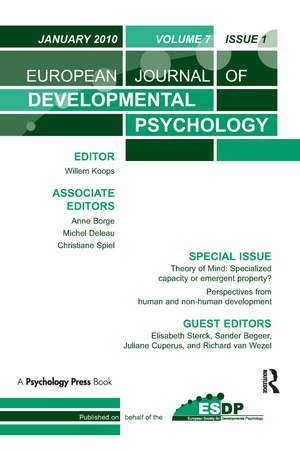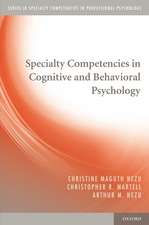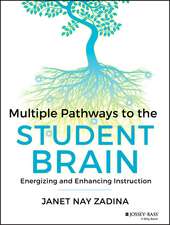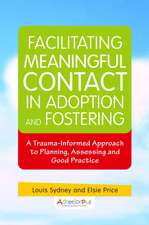Theory of Mind: Specialized Capacity or Emergent Property? Perspectives from Non-human and Human Development: A Special Issue of the European Journal of Developmental Psychology: Special Issues of the European Journal of Developmental Psychology
Editat de Elisabeth Sterck, Sander Begeer, Juliane Cuperus, Richard van Wezelen Limba Engleză Paperback – 8 noi 2010
| Toate formatele și edițiile | Preț | Express |
|---|---|---|
| Paperback (1) | 320.29 lei 6-8 săpt. | |
| Taylor & Francis – 8 noi 2010 | 320.29 lei 6-8 săpt. | |
| Hardback (1) | 669.94 lei 6-8 săpt. | |
| Taylor & Francis – 7 mai 2019 | 669.94 lei 6-8 săpt. |
Preț: 320.29 lei
Nou
Puncte Express: 480
Preț estimativ în valută:
61.29€ • 66.56$ • 51.49£
61.29€ • 66.56$ • 51.49£
Carte tipărită la comandă
Livrare economică 22 aprilie-06 mai
Preluare comenzi: 021 569.72.76
Specificații
ISBN-13: 9781848727311
ISBN-10: 1848727313
Pagini: 154
Dimensiuni: 156 x 234 x 8 mm
Greutate: 0.23 kg
Ediția:1
Editura: Taylor & Francis
Colecția Psychology Press
Seria Special Issues of the European Journal of Developmental Psychology
Locul publicării:Oxford, United Kingdom
ISBN-10: 1848727313
Pagini: 154
Dimensiuni: 156 x 234 x 8 mm
Greutate: 0.23 kg
Ediția:1
Editura: Taylor & Francis
Colecția Psychology Press
Seria Special Issues of the European Journal of Developmental Psychology
Locul publicării:Oxford, United Kingdom
Cuprins
E.H.M. Sterck, S. Begeer, Theory of Mind: Specialized Capacity or Emergent Property? Part 1. Nonhuman Development. J.M. Dally, N.J. Emery, N. S. Clayton, Avian Theory of Mind and Counter Espionage by Food-Caching Western Scrub-Jays (Aphelocoma californica). S.E. Koski, E.H.M. Sterck, Empathic Chimpanzees: A Proposal of the Levels of Emotional and Cognitive Processing in Chimpanzee Empathy. Part 2. Human Development. P. Mitchell, M. Bennett, U. Teucher, Do Children Start Out Thinking They Don't Know Their Own Mind? An Odyssey in Overthrowing the Mother of All Knowledge. M.P. Ketelaars, J.M. Cuperus, K. Jansonius, M. van Weerdenburg, L. Verhoeven, Dynamics of the Theory of Mind Construct: A Developmental Perspective. Part 3. Pathological Human Development. S. Begeer, B.F. Malle, M. Nieuwland, B. Keysar, Using Theory of Mind to Represent and Take Part in Social Interactions: Comparing Individuals with High-functioning Autism and Typically Developing Controls. H. Roeyers, E. Demurie, How Impaired is Mind Reading in High-functioning Adolescents and Adults with Autism. H.M. Geurts, M. Broeders, M.S. Nieuwland, Thinking Outside of the Executive Functions box: Theory of Mind and Pragmatic Abilities in Attention Deficit Hyperactivity Disorder.
Descriere
Theory of Mind, the cognitive capacity to attribute emotions, intentions and knowledge to oneself and others, has been claimed a hallmark of human cognition. Nonetheless, Theory of Mind is considered limited in young children and people with autism. Moreover, its presence in animals is much investigated, and hotly debated. Essential for cross-disciplinary discussions and real insight in this unique capacity is knowing what constitutes Theory of Mind. We aim to tackle this by combining insights from three different scientific fields that study Theory of Mind: animal behaviour, typical child development and developmental disorders such as autism and AD/HD.


















